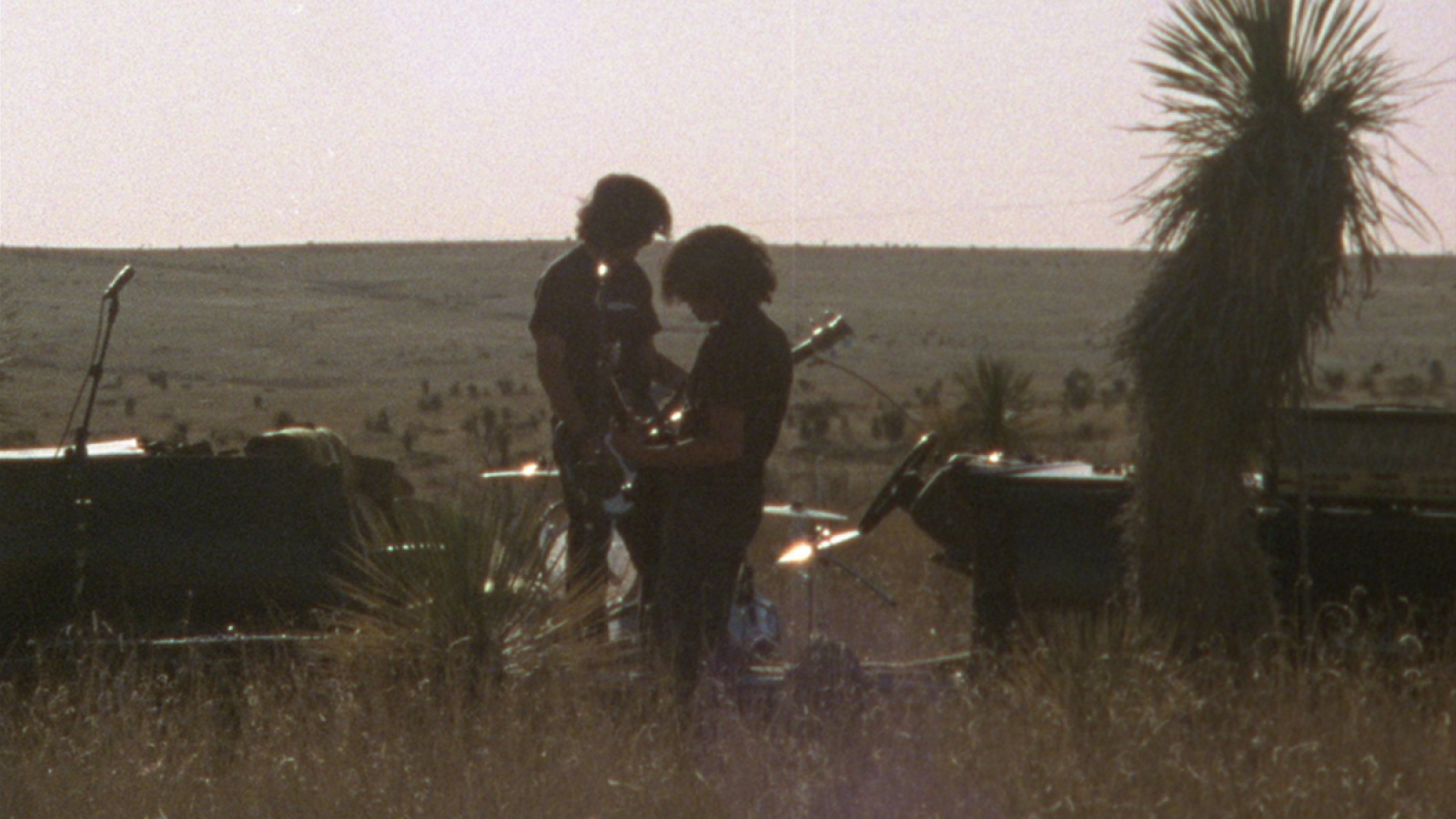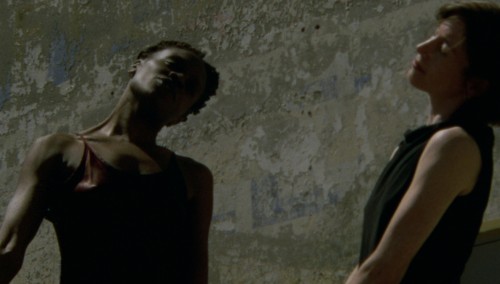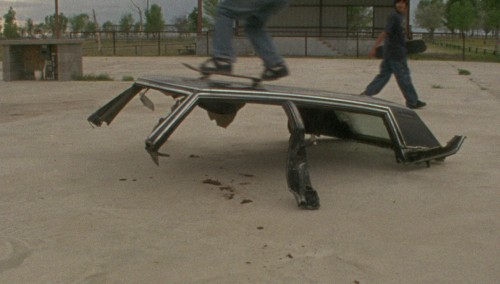Marfa
Die texanische Wüste als Projektionsfläche, als Ort, der mit seiner Rauheit und den widrigen Lebensbedingungen die anarchische Rhetorik des Punkrock perfekt rahmt, bildet einen der narrativen Bezugspunkte dieser Arbeit Wilhelm Sasnals, die während eines Aufenthaltes an der renommierten Chinati Foundation entstanden ist. Darin rollt ein alter Cadillac aus den 1970er-Jahren scheinbar von alleine durch die Landschaft. Er trifft auf ein Skateboard, später tanzen zwei Frauen auf seiner Motorhaube zu den Klängen einer Punkrockband. Für Letztere wird das Auto ausgeweidet und gleichzeitig aufpoliert, und schließlich als Konzertkulisse verwendet – sinnentleertes Zeichen des amerikanischen Traums. (Claudia Slanar)
Marfa is named after the town in Texas, which is known for Donald Judd’s collection and museum, but the film has no mention of this mythical art historical presence. Using everyone Sasnal knows in the town, including its only rock band, S.P.I.C., the film deals with the North American fascination for cars, showing a kind of performance taking place between the people, their cars and the Texan desert. (Frankfurter Kunstverein)
Director's Biography
ANKA SASNAL, born in 1973 in Tarnów in Poland, studied Polish literature and gender studies. As a screenwriter, editor, and filmmaker, she lives in Kraków together with Wilhelm Sasnal, who was also born in Tarnów in 1972 and studied architecture and painting. WILHELM SASNAL attracted international attention as a visual artist with a series of solo and group exhibitions in renowned international galleries and art institutions with paintings, comic books, drawings, photographs, and videos. From the first joint film project onwards, significant characteristics of their artistic collaboration are already visible: the intensive focus on language, texts, and literary models, which they transform into an image language that suits them. An explicit political stance can be noted in their films – thematically Anka and Wilhelm Sasnal circle around the current state of Polish society, rising xenophobia, the relationship of Polish society to the Catholic church, and especially the recent Polish past during the Second World War. A dystopian worldview, although not so much a pessimistic one – as they say themselves – may certainly be attributed to their work, along with an undisguised interest in the “dark” side of human beings. Anka and Wilhelm Sasnal are no strangers to the festival audience in Linz, as they have already been represented in the festival program twice in the past. In 2012, they won the main prize with It Looks Pretty from a Distance, which premiered in Rotterdam, and then returned with Parasite in 2014.
// Films at CROSSING EUROPE Film Festival 2017
// Co-directed films: Słońce, to słońce mnie oślepiło (The Sun, the Sun Blinded Me, 2016), Huba (Parasite, 2014; CE’14), Aleksander (2013, doc), Z daleka widok jest piękny (It Looks Pretty from a Distance, 2011; CE’12), Świniopas (Swineherd, 2008)
// Films by Wilhelm Sasnal: Afternoon of a Faun (2015, short), Columbus (2014, short), Inhuman Hunger (2014, short), Kacper (2010, short), Europa (2007, short), Brazil (2005, short), Marfa (2005, short)
// Films at CROSSING EUROPE Film Festival 2017
// Co-directed films: Słońce, to słońce mnie oślepiło (The Sun, the Sun Blinded Me, 2016), Huba (Parasite, 2014; CE’14), Aleksander (2013, doc), Z daleka widok jest piękny (It Looks Pretty from a Distance, 2011; CE’12), Świniopas (Swineherd, 2008)
// Films by Wilhelm Sasnal: Afternoon of a Faun (2015, short), Columbus (2014, short), Inhuman Hunger (2014, short), Kacper (2010, short), Europa (2007, short), Brazil (2005, short), Marfa (2005, short)
Tribute 2017
Wilhelm Sasnal
Polen 2005
color
28 Minuten
OmeU
Drehbuch Wilhelm Sasnal
Kamera Wilhelm Sasnal
Schnitt Wilhelm Sasnal
Ton/Sounddesign Wilhelm Sasnal
Musik S.P.I.C.
Österreichpremiere
Premierenstatus / Premiere Status Austrian Premiere
Gemeinsam mit / Together with
EUROPA
BRAZIL



